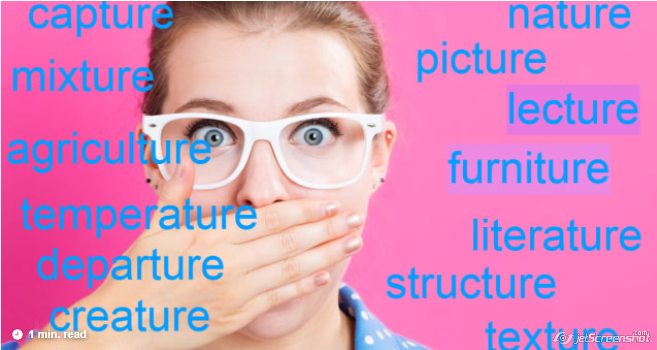On this blog post, we are going to address a very common pronunciation mistake among my students, and maybe among yours too.
Let’s start
Write on the board the word CULTURE and ask your students to try to pronounce it. It could be tried in pairs or just shouted. You’ll be surprised at the variety of different pronunciations your students will come up with.
Time to explain a bit of phonetics.
Your students might not be familiar with the international phonetic alphabet, but don’t let this discourage you.
Let’s break the sound up:
Write the symbol /tʃ/ on the board and model pronunciation. It should be quite easy as this sound exists in many languages. If it helps, ask them to find words in their language that have the same sound.
Got it? Now, write the vowel /ə/. You’ll probably want to explain this is the famous schwa, resist the temptation, or maybe not but, really, there is no need to add to their burden.
To get the sound right, just ask your students to relax and punch (slightly, you don’t want them to pass out) their stomachs. Ask: What sound did you get? Exactly, this is the schwa.
Now that we have the two sounds, put them together and there you have it. Tada!!! /tʃə/
Competition Game
Let’s go back now to our word CULTURE. Again, write it down on the board and, again, ask students to pronounce it. Better? Much better, I’m sure!
Competition: Ask students to work in pairs and tell them they have one minute to write down words ending in –ture. Needless to say, the winner is the pair with more correct –ture ending words.
Write their words on the board. If you feel there are some important ones left, write them on the board. Drill pronunciation.This is my selection of words:

Writing. More fun coming
Once all the words ending in -ture are on the board, ask students to work in pairs and write a sentence containing at least three words ending in- ture. Give students slips of paper ( I normally fold a regular sheet of paper in two, horizontally) and ask them to write (nice and legible) their small tongue twister there. Ask them to pass it to the pair sitting next to them. In pairs, they practise reading the sentence. Repeat procedure as many times as you deem appropriate.
Example:
The texture of the creature in the picture in the literature classroom was just amazing.
Spoiling the fun
This is English. One of the most unpredictable languages as regards pronunciation.
You might want to point out that in some cases, the ending -ture is not always pronounced /tʃə/, as in the word “mature”. Fortunately, this happens in only very few cases.